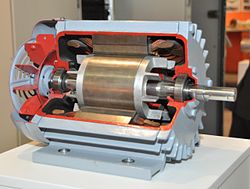Is solar energy renewable?
In the previous articles, we introduced solar energy. In this article, we intend to review the previous articles to examine the issue of whether solar energy is renewable or non-renewable? To answer this question, read this article to the end.
Solar energy is radiant light and heat from the Sun that is harnessed using a range of ever-evolving technologies such as solar heating, photovoltaics, solar thermal energy, solar architecture, molten salt power plants, and artificial photosynthesis.
As prices continue to fall, solar energy is increasingly becoming an economical energy choice for American homeowners and businesses. Still, the biggest hurdle to affordable solar energy remains the soft costs -- like permitting, zoning, and hooking a solar system up to the power gird. On average, local permitting and inspection processes add more than $2,500 to the total cost of a solar energy system and can take up to six months to complete.
China is focusing strongly on the deployment of wind and solar energy to support global emission reduction targets. However, to fully optimize the output from wind and solar parks, a fundamental change is required to the country’s power system operation. With a high proportion of China’s wind power located in the north and the north-east and load centres situated in the south and the south-east, the country recognises the need to transmit clean power through the country. To bridge the geographical divide, the Chinese government has plans to invest at least CNY 2 trillion ($315 bn) in its power grid infrastructure (Reuters 2015).
The total solar energy absorbed by Earth's atmosphere, oceans and land masses is approximately 3,850,000 exajoules (EJ) per year. In 2002, this was more energy in one hour than the world used in one year. Photosynthesis captures approximately 3,000 EJ per year in biomass.The amount of solar energy reaching the surface of the planet is so vast that in one year it is about twice as much as will ever be obtained from all of the Earth's non-renewable resources of coal, oil, natural gas, and mined uranium combined, The potential solar energy that could be used by humans differs from the amount of solar energy present near the surface of the planet because factors such as geography, time variation, cloud cover, and the land available to humans limit the amount of solar energy that we can acquire.
Solar technologies are characterized as either passive or active depending on the way they capture, convert and distribute sunlight and enable solar energy to be harnessed at different levels around the world, mostly depending on the distance from the equator. Although solar energy refers primarily to the use of solar radiation for practical ends, all renewable energies, other than Geothermal power and Tidal power, derive their energy either directly or indirectly from the Sun. Read more
The question is solar energy renewable or nonrenewable takes us to the point that solar energy that we receive here on planet earth is finite and will come to an end. While the sun has been in existence for 4.6 billion years, and it has been present throughout the existence of the human species, there will come a time when it will no longer exist.
As such, in the grandness of time, even solar energy that we receive here on planet earth is finite and will come to an end.
Read more can be seen in this link. You can also use the following resources.
References:
https://www.energy.gov/articles/top-6-things-you-didnt-know-about-solar-energy
https://www.linquip.com/blog/solar-energy-renewable-or-nonrenewable/
https://en.wikipedia.org/wiki/Solar_energy
https://www.wartsila.com/insights/article/space-based-solar-power-fact-or-fiction





Comments
Post a Comment